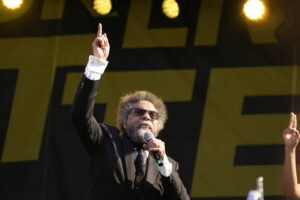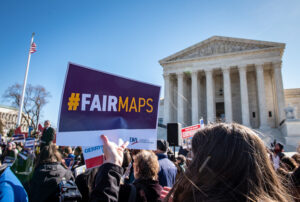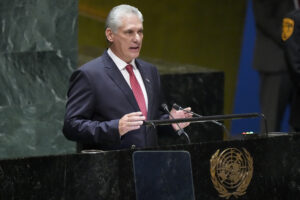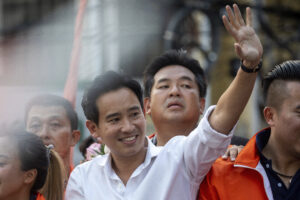Neocon Mea Culpas
Francis Fukuyama, one of the leading neocon intellectuals who argued the case for the Iraq war, admits in a blockbuster N.Y. Times Magazine essay that it is "very hard to see how [the removal of Saddam Hussein, and a few spillover benefits] justify the blood and treasure that the United States has spent." Andrew Sullivan, another leading pro-war conservative, echoes Fukuyama's comment and points out three areas where neocons were tragically wrong.Francis Fukuyama, one of the leading neocon intellectuals who argued the case for the Iraq war, admits in a blockbuster N.Y. Times Magazine essay that it is “very hard to see how [the removal of Saddam Hussein, and a few spillover benefits] justify the blood and treasure that the United States has spent.” Andrew Sullivan, another leading pro-war conservative, echoes Fukuyama’s comment and points out three areas where neocons were tragically wrong.
NYT:
As we approach the third anniversary of the onset of the Iraq war, it seems very unlikely that history will judge either the intervention itself or the ideas animating it kindly. By invading Iraq, the Bush administration created a self-fulfilling prophecy: Iraq has now replaced Afghanistan as a magnet, a training ground and an operational base for jihadist terrorists, with plenty of American targets to shoot at. The United States still has a chance of creating a Shiite-dominated democratic Iraq, but the new government will be very weak for years to come; the resulting power vacuum will invite outside influence from all of Iraq’s neighbors, including Iran. There are clear benefits to the Iraqi people from the removal of Saddam Hussein’s dictatorship, and perhaps some positive spillover effects in Lebanon and Syria. But it is very hard to see how these developments in themselves justify the blood and treasure that the United States has spent on the project to this point.
Andrew Sullivan:
I have no doubt that Frank Fukuyama’s essay in the New York Times Magazine will prompt a lot of debate. For my part, I think he gets his analysis almost perfectly right. In retrospect, neoconservatives (and I fully include myself) made three huge errors in the last few years. The first was to over-estimate the competence of government, especially in extremely delicate areas like WMD intelligence. The shock of 9/11 provoked an understandable but still mistaken over-estimation of the risks we faced. And our fear forced errors into a deeply fallible system. The result was the WMD intelligence debacle, something that did far more damage to the war’s legitimacy and fate than many have yet absorbed. Fukuyama’s sharpest insight here is into how the near miracle of the end of the Cold War almost certainly lulled many of us into over-confidence about the inevitability of democratic change, and its ease. We got cocky. We should have known better.
Your support matters…Independent journalism is under threat and overshadowed by heavily funded mainstream media.
You can help level the playing field. Become a member.
Your tax-deductible contribution keeps us digging beneath the headlines to give you thought-provoking, investigative reporting and analysis that unearths what's really happening- without compromise.
Give today to support our courageous, independent journalists.






You need to be a supporter to comment.
There are currently no responses to this article.
Be the first to respond.